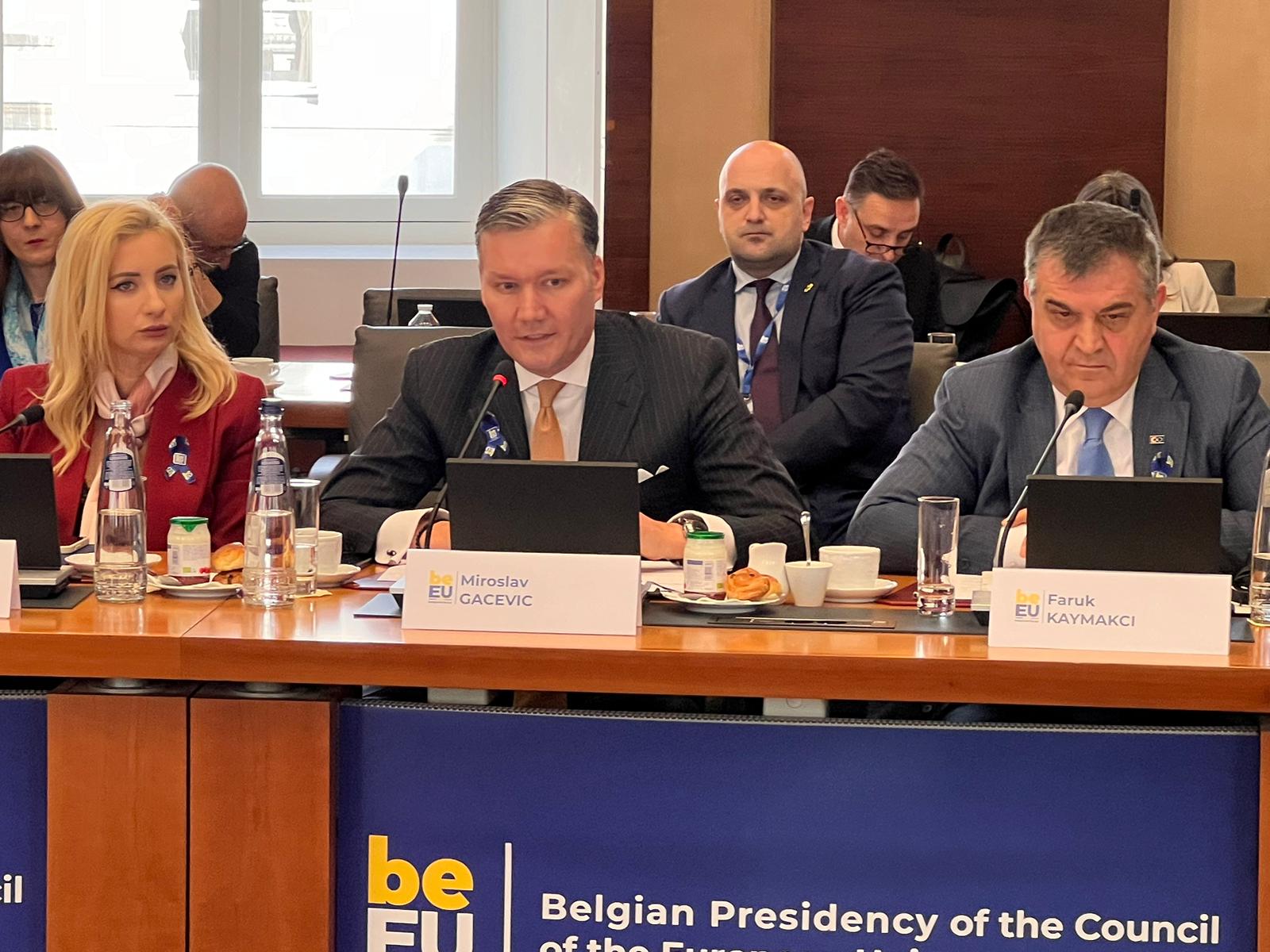
In Brussels today, the second day of the informal meeting of the EU General Affairs Council is taking place, during which the ministers for European affairs of EU member states will discuss the EU enlargement process, including the rule of law area, with ten partners with a European perspective, including Serbia.
The meeting of the EU General Affairs Council is being held on the occasion of the 20th anniversary of the significant EU enlargement in 2004 when ten countries joined the EU.
During the first working session, the ministers focused on the rule of law in the enlargement process, and Serbia was represented at the meeting by Acting Assistant Minister in the Ministry of European Integration Miroslav Gačević.
Representatives of Montenegro, Albania, Turkey, North Macedonia, Bosnia and Herzegovina, Ukraine, Moldova, as well as Priština are also participating.
“For the first time, we will gather at the Council not only with 27 member states but also with all partners with a European perspective. This is a very strong signal we are sending them today that they are already part of the family,” said Belgian Minister of Foreign and European Affairs, Sophie Wilmès, whose country holds the EU presidency.
She added that candidates needed to implement reforms but that the EU also needed to reform itself.
Upon arrival at the meeting, most representatives of EU member states indicated that the enlargement process had gained new momentum given the geopolitical changes. They emphasised the importance of that process for preserving the rule of law.
During the EU General Affairs Council meetings, ministers are also discussing the importance of preserving the rule of law in the “Future Union” and the future of the EU itself.
Last night, on the first day of the meeting of EU member states’ ministers for European affairs, a ceremony was held in Brussels during which European Council President Charles Michel said that the EU and candidate countries had to be ready for enlargement by 2030.
He said that the next wave of EU enlargement represented a geopolitical imperative and “a new meeting with history”.
Source: Tanjug








